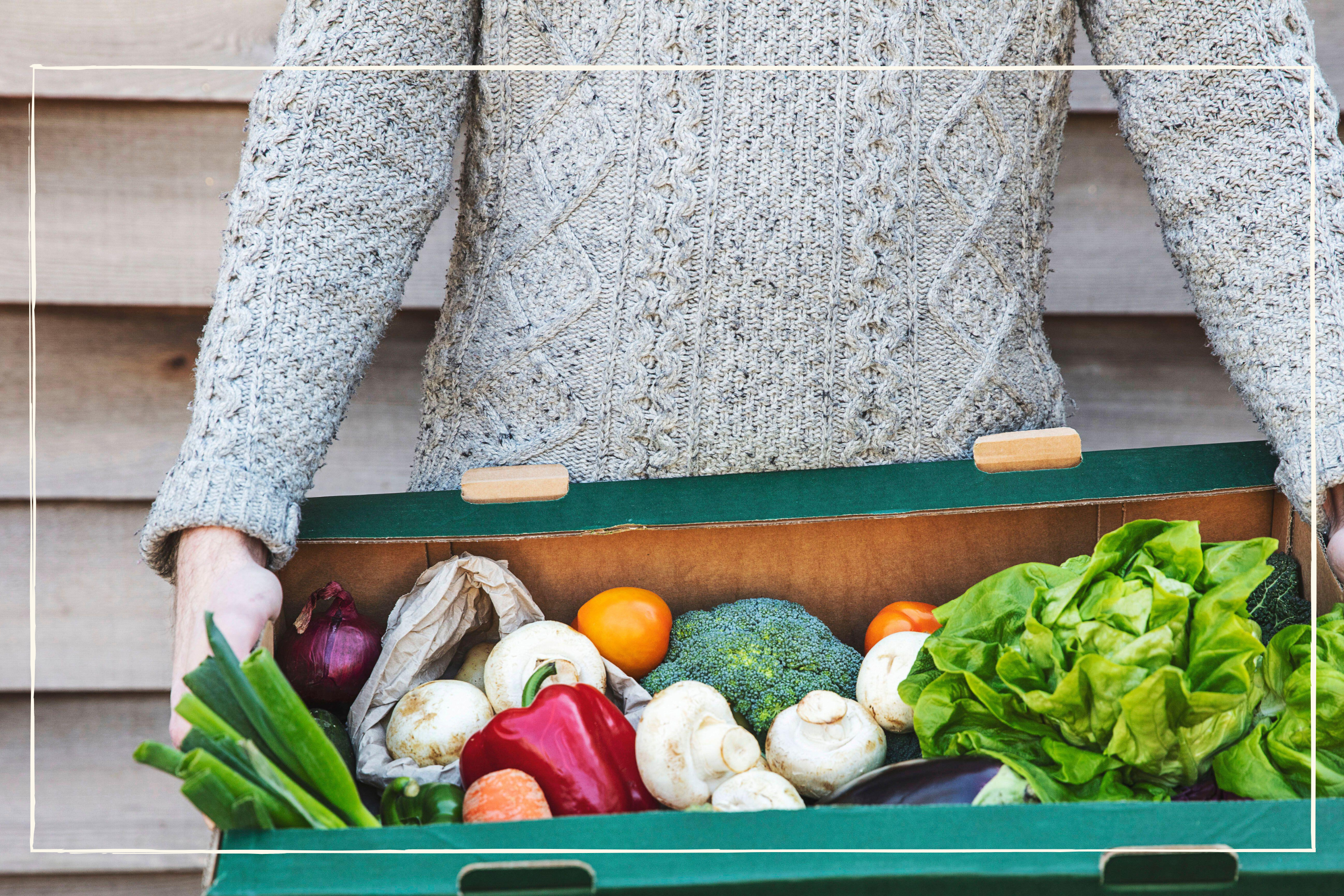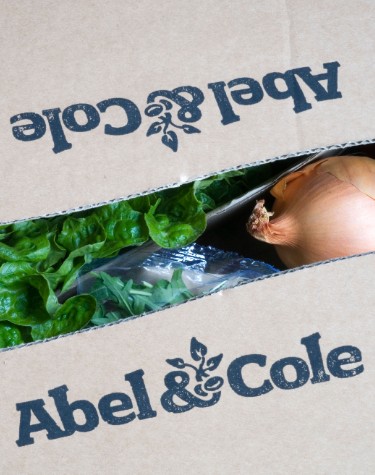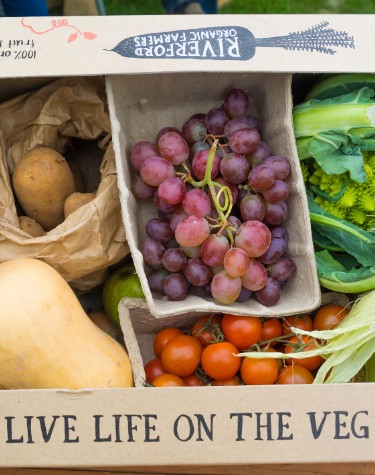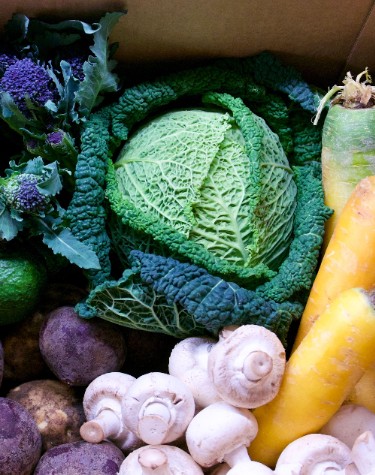Is organic food really better for your health – and is it worth the cost?
During Organic September, we look at what it actually means - and what we're really paying for when it comes to our food choices


One of my favourite fridge magnets states: ‘I love organic food. Or as my grandparents called it, ‘food’.’ It’s a perfectly succinct way of summing up contemporary farming methods and the man-made ‘extras’ used to grow food, such as antibiotics, fertilisers, and pesticides. But while these additions help generate the vast sums of food we eat, are they doing us more harm than good?
In 2023, a government study found pesticide residues in 49% of food samples, although these were within or at the allowed maximum residue limits (MRL). However, the safety of these levels has been disputed, particularly because, since Brexit, far higher pesticide residues are allowed on food, reports the Guardian.
In the same article, Nick Mole from the Pesticide Action Network (PAN UK) said, “Safety limits have been undermined for a worrying list of pesticides. At a time when cancers and other chronic diseases are on the rise, we should be doing everything we can to reduce our chemical exposure. In reality, we have no idea what this ongoing exposure to tens – or even hundreds – of different chemicals is doing to our health over the long term.”
So, while some of us are avid fans, not all of us can afford organic, and some of us don’t think it merits the extra cost. Perhaps, like most things in life, it’s a matter of balance, and weighing up what we feel is worth spending our hard-earned cash on.
What does organic actually mean?
The Soil Association, who run the Organic September campaign, defines organic as a means of producing items that work with nature, explaining that it ‘means higher levels of animal welfare, lower levels of pesticides, no manufactured herbicides or artificial fertilisers, and more environmentally sustainable management of the land and natural environment, which means more wildlife.’
As well as providing a better quality of life for livestock, organic farming is better for other forms of wildlife, and for the environment – the Soil Association says that organic farms attract 30% more wildlife such as bees, birds, and butterflies, compared to non-organic farms.
Contrary to popular belief, organic food isn't always 100% free of medicine and pesticides. If and when it’s required, fertilisers, pesticides, and medicine may be used to prevent produce from going to waste. However, organic farming doesn’t practise the routine use of antibiotics, which can trickle down to the food chain, resulting in antibiotic resistance. And while there are nearly 300 pesticides that can be used on conventional farms, there are around 20 approved for use on organic farms, and these are derived from natural ingredients.
Sign up to our free daily email for the latest royal and entertainment news, interesting opinion, expert advice on styling and beauty trends, and no-nonsense guides to the health and wellness questions you want answered.
To be certified, organic farms go through rigorous (and expensive) testing. The Soil Association Certification is the largest and best known; it certifies more than 70% of organic food and drink products in the UK, inspecting ‘every step of the process – from field to fork – to make sure the highest standards are maintained.’
Some people might think that they can just wash or cook non-organic produce and that’s enough. This can remove some pesticides, but not all, so we’re still exposed to them. One way around this is to wash non-organic produce in a natural product such as Veggie Wash, which removes agricultural contaminants and is five times more effective than rinsing in water.
Why is organic food more expensive?
Organic farming tends to be more challenging, with higher production, animal feed and labour costs, so, naturally, this affects prices. Organic farms also tend to be smaller than industrial-scale farms, with lower yields and a higher risk of crop failure.
Although there are government subsidies, it takes around two years to convert a conventional farm into an organic farm, and this change involves a lot of upfront investment.
Other factors that drive up costs include:
- More expensive animal feed
- Pest control
- Time-consuming methods like crop rotation and manual weeding
- Greater risk of crop failure
- Expensive certification processes.
That said, organic food isn’t always out of reach. While some items are noticeably pricier, others are only marginally more expensive – especially when they are in season, part of a supermarket’s own-brand organic range, or on offer.
For example, at the time of writing, organic carrots cost £1.79 per kilo on Sainsbury’s - compared to £1.63 in ASDA. And an M&S Organic Free Range Whole Chicken costs £11.50 per kg - compared to an Ocado Organic Free Range Whole Chicken, which costs £10 per kg.
Organic food delivery boxes

Abel & Cole is known for eco-friendly packaging, zero air miles, and fair pay for farmers. The company delivers organic fruit, veg, and groceries weekly across most of the UK. You can choose from a range of box sizes and types, and add meat, fish, dairy, or cupboard staples. The boxes change with the seasons, and you can swap or skip items to suit your taste.

Riverford is a farmer-led, employee-owned business delivering fresh, seasonal organic veg, fruit, and extras UK-wide. Boxes are planned for maximum flavour and variety, and often include recipes and news. You can add dairy, meat, and other essentials alongside produce. The company is deeply committed to sustainability – from solar power to paying the Living Wage.

The Organic Delivery Company has been delivering organic produce for over 20 years, and offers UK-wide delivery of certified organic fruit, veg, and pantry items. Customers can choose from set boxes or tailor their own, with plastic-free options available. Produce is sourced from trusted organic farms for freshness and quality.
Is organic food healthier?
All in all, there are advantages and disadvantages to both, and although some studies on the benefits of organic food are promising, others have found only small nutritional differences.
Organic foods have no added artificial colours or preservatives, or genetically modified ingredients, and many researchers argue they are nutritionally superior to non-organic foods. For example, a 2016 study conducted by researchers at Newcastle University found ‘clear differences between organic and conventional milk and meat’.
The organic milk and meat tested was found to have roughly 50% more omega-3 fatty acids than their non-organic equivalents. Organically produced cereals, fruits and vegetables are also thought to contain up to 68% more antioxidants compared to conventionally farmed produce.
However, some experts argue that these benefits are not enough to make a difference. “Vitamin and mineral values are similar amongst organic or non-organic foods,” says Reema Pillai, a registered dietician and nutritionist in London. “Therefore, I would not say that organic food is worth the extra expense. However, there may be some benefits in terms of farming practices being better for the environment to help promote biodiversity and reduce pollution, and the benefits of better-raised animals in organic farms.”
Factor in the stringent rules for pesticide use in conventional farming in the UK, and the extra cost of organic food, and some of us may feel that eating organic – while a lovely thought, isn't always achievable. Or we may decide to pick and choose depending on what’s on the ‘Dirty Dozen’ list or in the US initiative, the ‘Clean 15’.
How to save money on organic foods
Many people believe organic foods and products cost more but this isn’t always the case. Organic items are often a similar price to non-organic, and several major supermarkets have their own organic range, some of which are pleasingly affordable (we're looking at you, Lidl).
These are some of the ways to buy organic food on a budget:
- 1. Buy direct Buying from farmers' markets or farm shops can cut costs, as can signing up to a delivery box scheme such as Abel & Cole or Riverford – these options are particularly cost-effective if you opt for seasonal boxes. Eating with the seasons is a great way to buy organic fruit and veg cheaper, as they'll often be in surplus. Another bonus about markets and delivery boxes is that they use less plastic packaging.
- 2. Buy in bulk Dry goods such as organic pasta, rice, pulses and wholegrains can often be found at lower prices when bought in larger packs or through online wholefood retailers. For example, on Buy Wholefoods Online, Organic White Penne costs 61p per 100g when bought in a 500g pack, but 52p per 100g when you buy a kilo.
“Buying in bulk often means the price overall is less expensive,” says Reema. “Particularly for grains, oats, nuts, and seeds – items that keep well and you use regularly.” - 3. Think holistically There are other ways to free up some of the grocery budget for organic products. To make it easier and more affordable, transition to organic food in stages – prioritise buying the Dirty Dozen organic, and then gradually introduce more products. You can also plan your meals, eat seasonally, buy reduced organic items to freeze, consume less meat, and grow your own – all of these can reduce waste, too. And, without getting on a moral high horse, it’s worth remembering that when you buy organic, it’s not only your health that benefits. While organic does cost more, you are paying for the extra care organic farmers place on the environment and animal welfare, says the Soil Association.
Debra Waters is an experienced online editor and lifestyle writer with a focus on health, wellbeing, food and parenting. Currently, she writes for Woman&Home, NOON, and Psychology Now. Previously, Debra was digital food editor at delicious magazine and MSN. She’s written for Everyday Health, Great British Chefs, loveFOOD, M&S Food, Time Out, The Big Issue, The Telegraph, What to Expect, Woman and Woman’s Own. Debra is also an essayist and short story writer.
You must confirm your public display name before commenting
Please logout and then login again, you will then be prompted to enter your display name.
